A Comparative Summary of Hazelnuts and Peanuts Introduction: Hazelnuts and peanuts are two highly popular and widely consumed nuts that have various culinary applications. While both nuts offer a range of health benefits, they differ in terms of flavor profiles, nutritional composition, and culinary uses. In this article, we will provide a comprehensive summary to help readers understand the unique characteristics of hazelnuts and peanuts. Hazelnuts: Hazelnuts, also known as filberts, have been cultivated for centuries and are native to Europe and certain parts of Asia. They are widely known for their rich, buttery flavor and are found in numerous cuisines worldwide. Some key points to note about hazelnuts are as follows: 1. Nutritional Profile: Hazelnuts are a nutrient-dense food, packed with vitamins, minerals, and beneficial plant compounds.
nuts
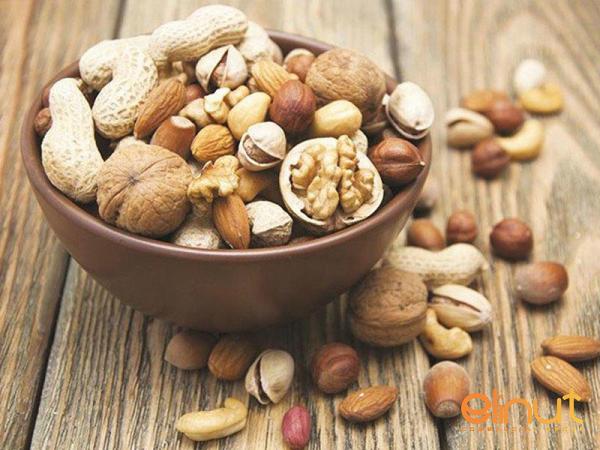 They are an excellent source of healthy fats, including monounsaturated fatty acids, which are associated with heart health. Hazelnuts are also rich in vitamin E, copper, and manganese, which contribute to antioxidant activity, neurological health, and bone health, respectively. 2. Culinary Uses: The unique flavor and crunch of hazelnuts make them a versatile ingredient in a variety of culinary applications. They are commonly used in baking, confectionery, and desserts. Hazelnuts are also commonly found in spreads like Nutella and can be used to make nut milk or consumed as a snack. 3. Hazelnut Oil: Hazelnut oil, extracted from roasted hazelnuts, is highly valued for its nutty flavor and its use in culinary creations. It is commonly used in salad dressings, sauces, and as a gourmet cooking oil. Additionally, hazelnut oil is praised for its high vitamin E content and potential health benefits.
They are an excellent source of healthy fats, including monounsaturated fatty acids, which are associated with heart health. Hazelnuts are also rich in vitamin E, copper, and manganese, which contribute to antioxidant activity, neurological health, and bone health, respectively. 2. Culinary Uses: The unique flavor and crunch of hazelnuts make them a versatile ingredient in a variety of culinary applications. They are commonly used in baking, confectionery, and desserts. Hazelnuts are also commonly found in spreads like Nutella and can be used to make nut milk or consumed as a snack. 3. Hazelnut Oil: Hazelnut oil, extracted from roasted hazelnuts, is highly valued for its nutty flavor and its use in culinary creations. It is commonly used in salad dressings, sauces, and as a gourmet cooking oil. Additionally, hazelnut oil is praised for its high vitamin E content and potential health benefits.
Specifications of nuts
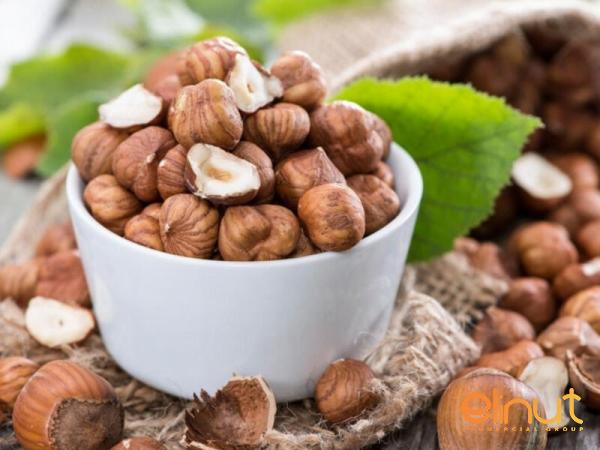 4. Health Benefits: Hazelnuts offer several health benefits. Their high content of monounsaturated fats can help reduce bad cholesterol levels while promoting good cholesterol. Hazelnuts also contain antioxidants that protect against cell damage, reducing the risk of chronic diseases. Furthermore, they are a good source of dietary fiber, promoting healthy digestion and aiding in weight management. Peanuts: Peanuts, also called groundnuts and goobers, are legumes rather than true nuts. Originating in South America, they are now cultivated in many regions worldwide. Peanuts have a distinct roasted flavor and are known for their contribution to the classic favorite, peanut butter. Here are some key points about peanuts: 1. Nutritional Profile: Peanuts are packed with nutrients, including protein, healthy fats, and an array of vitamins and minerals. Notably, peanuts are an excellent source of biotin, a B-vitamin essential for healthy hair, skin, and nails. Additionally, they contain significant amounts of vitamin E, niacin, folate, and magnesium.
4. Health Benefits: Hazelnuts offer several health benefits. Their high content of monounsaturated fats can help reduce bad cholesterol levels while promoting good cholesterol. Hazelnuts also contain antioxidants that protect against cell damage, reducing the risk of chronic diseases. Furthermore, they are a good source of dietary fiber, promoting healthy digestion and aiding in weight management. Peanuts: Peanuts, also called groundnuts and goobers, are legumes rather than true nuts. Originating in South America, they are now cultivated in many regions worldwide. Peanuts have a distinct roasted flavor and are known for their contribution to the classic favorite, peanut butter. Here are some key points about peanuts: 1. Nutritional Profile: Peanuts are packed with nutrients, including protein, healthy fats, and an array of vitamins and minerals. Notably, peanuts are an excellent source of biotin, a B-vitamin essential for healthy hair, skin, and nails. Additionally, they contain significant amounts of vitamin E, niacin, folate, and magnesium.
Buy nuts
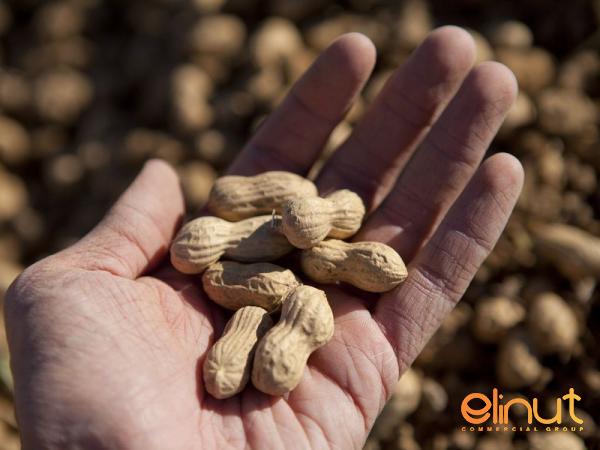 2. Culinary Uses: Peanuts are a highly versatile ingredient found in various cuisines. They are a staple in Asian cuisine, featured in stir-fries, satays, and peanut sauces. In Western cuisines, peanuts are used in baking, sweets, and as garnishes for salads and desserts. Peanut butter, made from ground peanuts, is a beloved spread enjoyed worldwide. 3. Peanut Oil: Peanut oil, often referred to as groundnut oil, is derived from peanuts and has a mild, nutty flavor. It is commonly used in cooking and frying due to its high smoke point. Peanut oil is also widely used in salad dressings, marinades, and as a base for flavored oils. 4. Health Benefits: Peanuts offer numerous health benefits due to their nutrient content. They are an excellent source of plant-based protein, making them a valuable component of vegetarian and vegan diets. The monounsaturated fats found in peanuts have been associated with reduced heart disease risk. Peanuts are also rich in antioxidants, which protect against oxidative stress and inflammation.
2. Culinary Uses: Peanuts are a highly versatile ingredient found in various cuisines. They are a staple in Asian cuisine, featured in stir-fries, satays, and peanut sauces. In Western cuisines, peanuts are used in baking, sweets, and as garnishes for salads and desserts. Peanut butter, made from ground peanuts, is a beloved spread enjoyed worldwide. 3. Peanut Oil: Peanut oil, often referred to as groundnut oil, is derived from peanuts and has a mild, nutty flavor. It is commonly used in cooking and frying due to its high smoke point. Peanut oil is also widely used in salad dressings, marinades, and as a base for flavored oils. 4. Health Benefits: Peanuts offer numerous health benefits due to their nutrient content. They are an excellent source of plant-based protein, making them a valuable component of vegetarian and vegan diets. The monounsaturated fats found in peanuts have been associated with reduced heart disease risk. Peanuts are also rich in antioxidants, which protect against oxidative stress and inflammation.
nuts + buy and sell
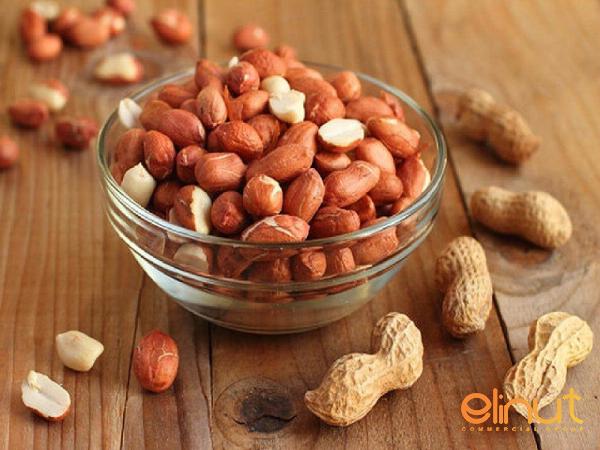 Comparison of Hazelnuts and Peanuts: While both hazelnuts and peanuts offer several health benefits and culinary applications, they have distinct differences that set them apart: 1. Flavor Profile: Hazelnuts have a sweet, buttery flavor, while peanuts have a deeper, nuttier taste, often enhanced by roasting. 2. Nutritional Composition: Hazelnuts are higher in monounsaturated fats, vitamin E, and certain minerals like copper and manganese. Peanuts, on the other hand, contain more protein, biotin, niacin, and folate. 3. Culinary Uses: Hazelnuts are widely used in baking, confectionery, and as a snack. Peanut butter and peanuts are popularly consumed as spreads, in salads, and as ingredients in Asian cuisine. Conclusion: Both hazelnuts and peanuts offer unique flavor profiles, nutrient-rich composition, and versatile culinary uses. Hazelnuts are celebrated for their buttery taste and are commonly used in baking and confectionery. Peanuts, on the other hand, provide a distinct, nutty flavor and are often highlighted in spreads such as peanut butter or used in Asian cuisine. Incorporating these nuts into a balanced diet can provide various health benefits and enhance the gustatory experience.
Comparison of Hazelnuts and Peanuts: While both hazelnuts and peanuts offer several health benefits and culinary applications, they have distinct differences that set them apart: 1. Flavor Profile: Hazelnuts have a sweet, buttery flavor, while peanuts have a deeper, nuttier taste, often enhanced by roasting. 2. Nutritional Composition: Hazelnuts are higher in monounsaturated fats, vitamin E, and certain minerals like copper and manganese. Peanuts, on the other hand, contain more protein, biotin, niacin, and folate. 3. Culinary Uses: Hazelnuts are widely used in baking, confectionery, and as a snack. Peanut butter and peanuts are popularly consumed as spreads, in salads, and as ingredients in Asian cuisine. Conclusion: Both hazelnuts and peanuts offer unique flavor profiles, nutrient-rich composition, and versatile culinary uses. Hazelnuts are celebrated for their buttery taste and are commonly used in baking and confectionery. Peanuts, on the other hand, provide a distinct, nutty flavor and are often highlighted in spreads such as peanut butter or used in Asian cuisine. Incorporating these nuts into a balanced diet can provide various health benefits and enhance the gustatory experience.

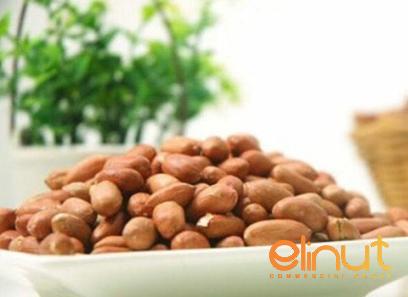

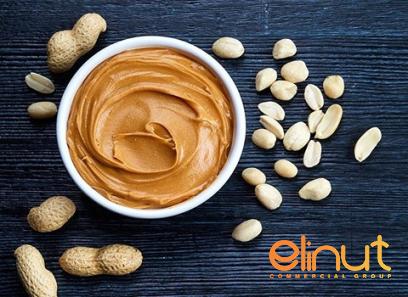
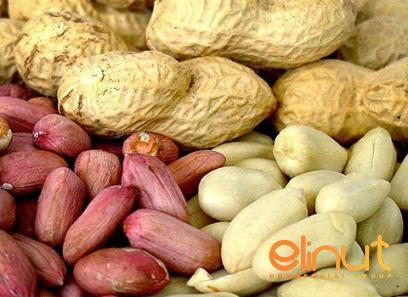
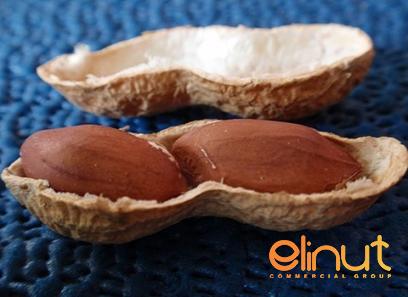
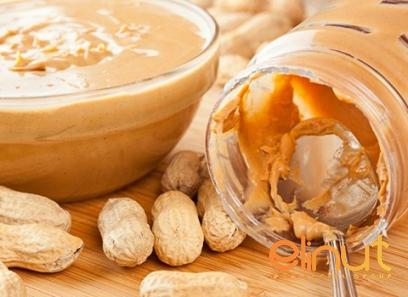
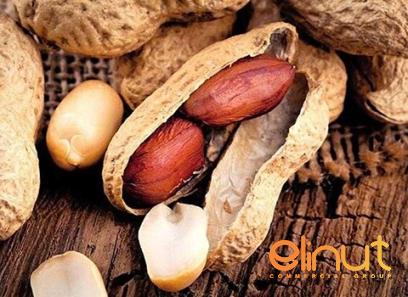
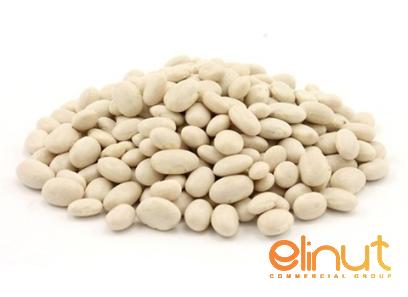

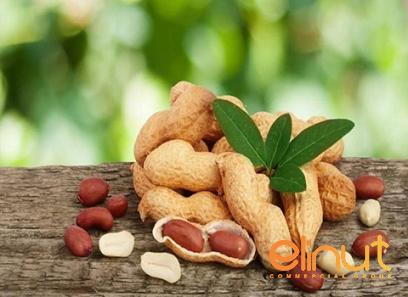
Your comment submitted.